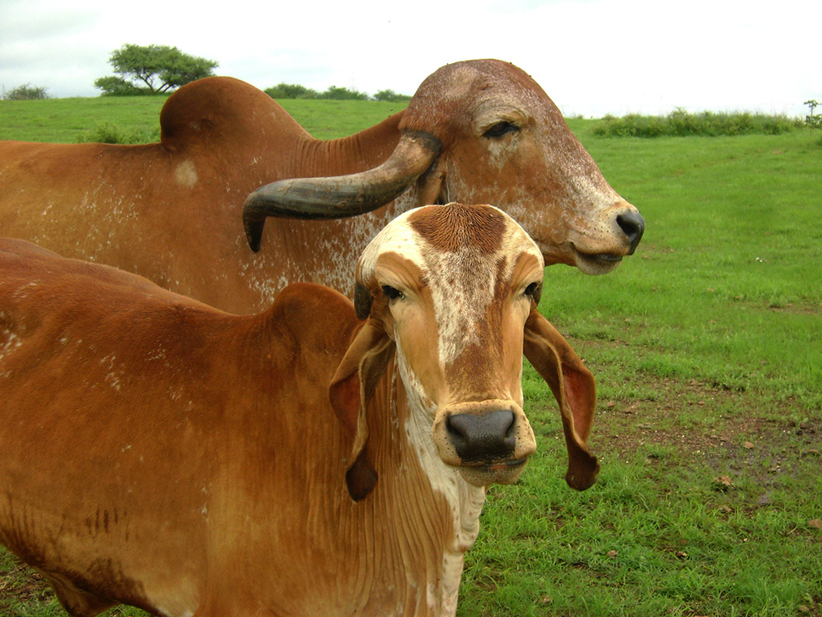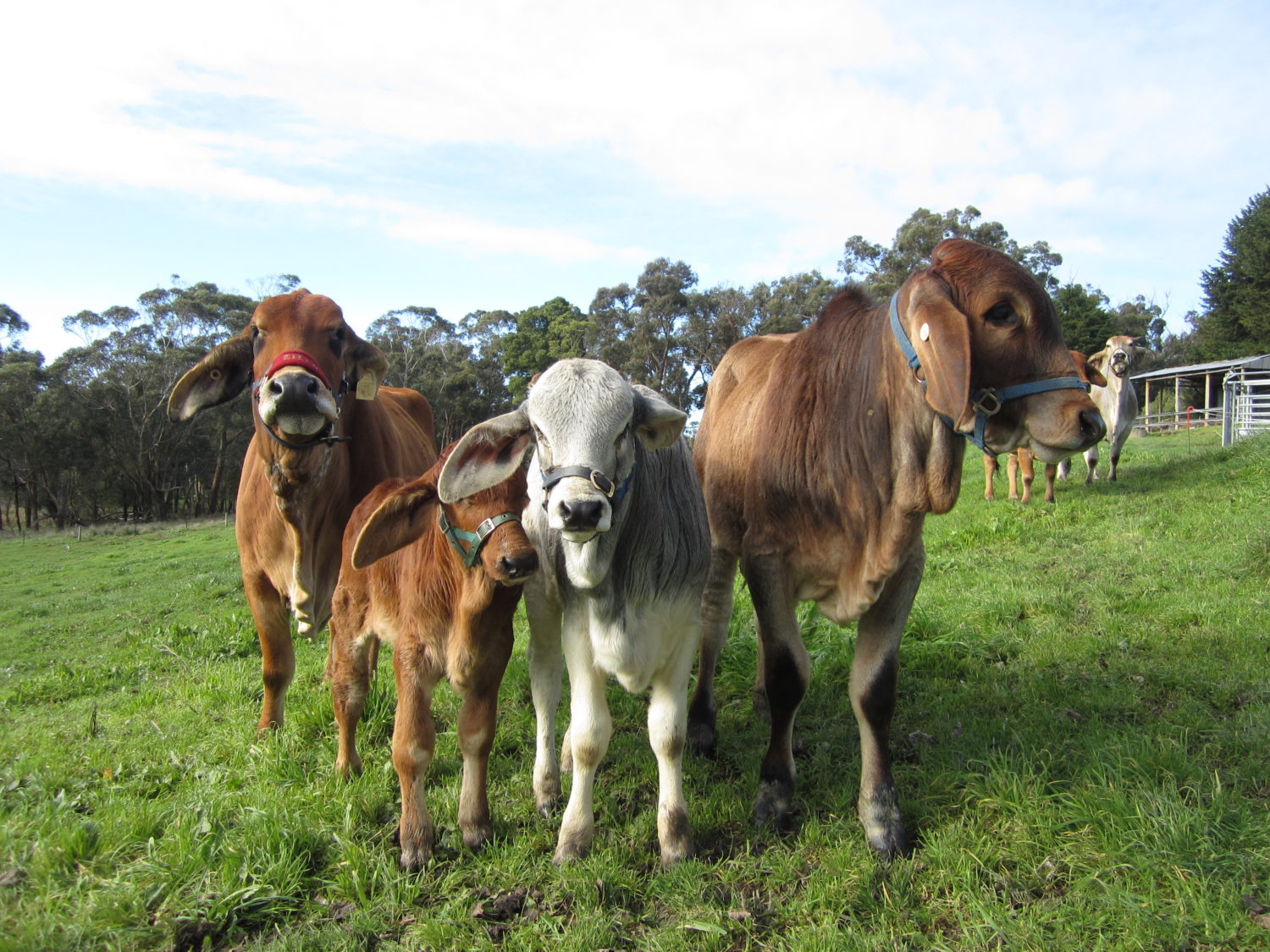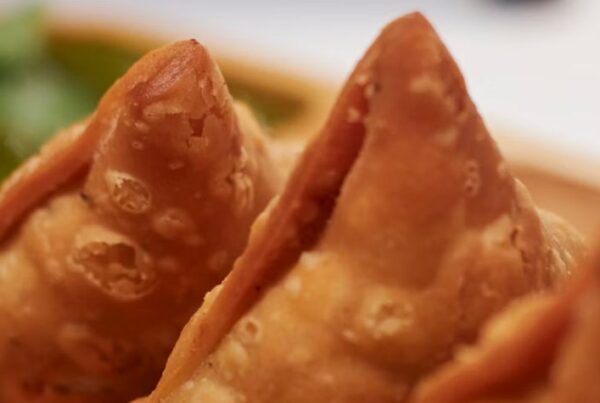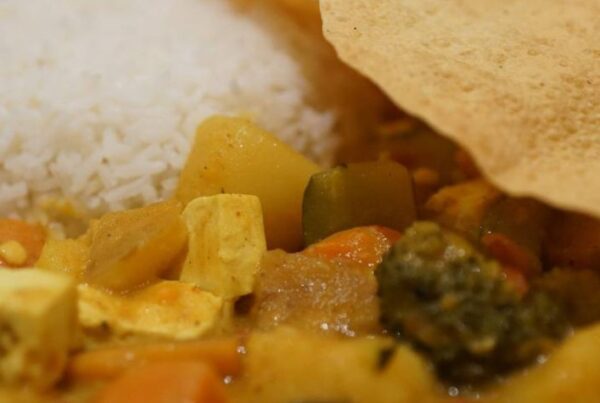In the Hare Krishna faith cows are seen as sacred, and the care of cows is likewise viewed as a highly valued and pious pastime. For a lot of people who are new to the Hare Krishna faith, it can seem contradictory to promote a non-violent, vegetarian lifestyle that includes milk and other dairy products. But why do Hare Krishnas revere cows, and how do we practice non-violent dairy?
Cows and the Hare Krishna Faith
To explain why those who follow the Hare Krishna faith hold cows in such high esteem, you should understand one key belief: cows are respected and protected as mothers. Just as mothers provide their children with milk that supplies nutrients and energy, cows too provide milk that nurtures our health and wellbeing – and killing or mistreating them holds the same karmic value as killing or mistreating one’s own mother.
While cows are highly revered for their ability to nurture and provide nourishment, bulls are also highly respected and well treated. On non-violent farms like Hare Krishna Valley, bulls are respected for their ability to take on labour around the farm, such as cultivating gardens and fields or driving carts. In today’s Hare Krishna communities, cowherds are highly respected, as it is understood they are doing God’s work. One of Krishna’s names is Gopāla which means the protector of the cows.
The story of Krishna is one closely tied with cows; indeed, he grew up in a cowherd community. In His instructions for us, Lord Krishna states that cow protection is one of the prime duties of any society.
Ancient Vedic texts teach us that the cow is a representative of Mother Earth, and mistreatment of cows and bulls causes her to withdraw her bounty.
Our founder A.C. Bhaktivedanta Swami Prabhupada says regarding cows:
“Of all kinds of animal killing, the killing of cows is the most vicious because the cow gives us all kinds of pleasure by supplying milk. Cow slaughter is an act of the grossest type of ignorance”

What is non-violent dairy?
For Hare Krishnas the practice of non-violence is intrinsically linked with their faith and lifestyle. Non-violent dairy combines the practice of non-violence with the reverence of cows as providers and nurturers.
Many modern dairy farms use cows for dairy, and they can be subjected to mistreatment, overmilking, or death. Hare Krishna Cow Protection farms raise cows and bulls from birth with respect and care. Milk that comes from these hand-raised cows produces milk, which is called ahimsa milk, meaning non-violent milk.
To create ahimsa milk, there are some rules that need to be followed on the farm:
- Cows should not be killed or harmed
- Calves suckled from their mothers until weaned, and allowed to stay with the herd
- Milking is done primarily by hand
- Milk must be freely given by cows
- Bulls and oxen are provided meaningful work
- Cows are allowed to graze freely in their pastures
By following these rules, ahimsa milk is rich in vitamins and nutrients provided by stock that is cared for and loved.

Care for Cows
Taking care of our cows, and helping them to provide milk, is so important to us that we have set up a program to produce food sustainably, with dependence on our cows and bulls. Our Care for Cows program helps to highlight the importance of protection of cows, and the benefits of sustainable farming.
Our farm relies heavily on sponsorship and investment within our Care for Cows project. There are a number of ways people can get involved in supporting this project. Aside from sponsorship and donations, those interested can Adopt a Cow. Our cows are Gir, a charming and distinct breed that originated in north-western India. These cows are some of the gentlest, and love being around humans. This breed is highly fertile, their milk is some of the best and nutritious, and despite their gentle nature, the bulls are incredibly hard working. Protecting these loving creatures, whether they are producing milk or not, is our utmost priority.
Hare Krishna Valley often opens its doors to those who are looking to learn more about our well cared-for cows. If you’d like to learn more about the Care for Cows program, or Hare Krishna Valley farm, have a look at our Hare Krishna Valley page.


